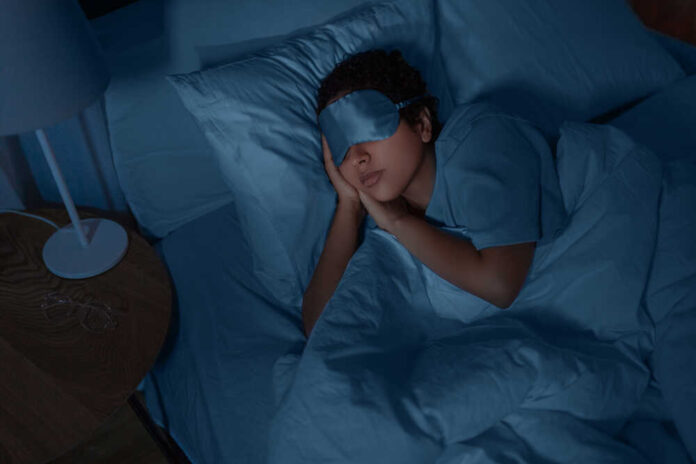
The realm of sleep extends its influences into every corner of our health.
It’s intricately linked with our cognitive function, mental health, physical wellbeing, and much more. Even our digestion and immune system rely on adequate sleep to fend off diseases.
A lack of quality sleep disrupts these processes, leading to far-reaching consequences beyond a mere lack of energy.
So to help you get a full night of sleep, here are 9 evidence-based tips you can easily include in your evening routine.
Maintain a Consistent Sleep Schedule
Our body’s internal clock, or circadian rhythm, governs our natural cycle of sleeping and waking hours.
Maintaining a consistent sleep schedule can help align our body’s internal clock with the day-night cycle, promoting better sleep onset and quality. For an effective sleep schedule, consistency is key, and this extends to weekends and holidays.
Create a Sleep-Conducive Environment
Having a sleep-friendly environment goes beyond just having a comfortable bed. From room temperature to noise levels and light exposure, several environmental factors can impact your sleep.
Cool, quiet, and dark spaces can help signal to your brain that it’s time for rest.
Dim the Lights and Reduce Screen Time
Exposure to bright light in the evening can interfere with your body’s natural sleep-wake cycle.
Dimming the lights and reducing screen time before bed can help prepare your body for sleep by promoting the natural production of melatonin, a hormone that regulates your sleep.
Eat Healthier Foods
Your nutrition choices can affect your sleep patterns.
Certain foods and drinks, especially those high in caffeine and sugar, can interfere with your ability to fall asleep or disrupt your sleep cycle. On the other hand, foods rich in tryptophan, magnesium, and melatonin can promote sleep.
Understanding how your diet influences your sleep can help guide healthier food choices for better sleep.
Avoiding Alcohol and Drugs
While alcohol might make you feel sleepy initially, it can interfere with your sleep cycle once you’re out, causing disruptions and reducing the quality of your sleep.
Drugs, including prescription medications, can also impact sleep patterns. Always consult with a healthcare professional about the potential sleep-related side effects of any medication.
Engage in More Physical Activity
Regular exercise can be beneficial for your sleep. It helps reduce stress, improve mood, and regulate your body’s internal clock.
However, timing matters. Vigorous exercise too close to bedtime can interfere with your ability to fall asleep.
Address Stress and Anxiety
Managing stress and anxiety can significantly improve your sleep.
Utilizing relaxation techniques, such as mindfulness, deep breathing, or progressive muscle relaxation, can help calm your mind and prepare your body for sleep. These can also alter your brain’s neural pathways, making you more resilient to stress.
Be Careful With Daytime Naps
Daytime naps can be a double-edged sword.
While short power naps can enhance productivity and mood, long or irregular napping can confuse your internal clock, affecting your nighttime sleep quality and duration.
Ask for Professional Help
Sleep issues can sometimes indicate underlying health conditions, such as sleep apnea, restless legs syndrome, or mental health issues like anxiety and depression.
If you’ve tried multiple strategies and your sleep hasn’t improved, it might be time to consult a healthcare professional.






















